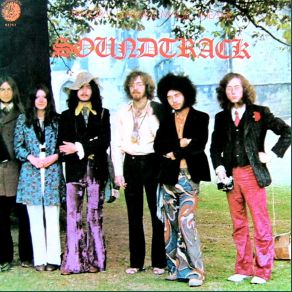Soundtrack
Download links and information about Soundtrack by Principal Edwards Magic Theatre. This album was released in 1969 and it belongs to Rock, Progressive Rock, World Music, Songwriter/Lyricist, Psychedelic, Contemporary Folk genres. It contains 8 tracks with total duration of 53:29 minutes.

|
|
|---|---|
| Artist: | Principal Edwards Magic Theatre |
| Release date: | 1969 |
| Genre: | Rock, Progressive Rock, World Music, Songwriter/Lyricist, Psychedelic, Contemporary Folk |
| Tracks: | 8 |
| Duration: | 53:29 |
| Buy it NOW at: | |
| Buy on iTunes $9.99 | |
| Buy on Amazon $8.99 | |
| Buy on iTunes $9.99 | |
| Buy on Songswave €1.50 | |
Tracks
[Edit]| No. | Title | Length |
|---|---|---|
| 1. | Enigmatic Insomniac Machine | 5:00 |
| 2. | Sacfrifice | 7:18 |
| 3. | The Death of Don Quixote | 13:33 |
| 4. | Third Sonnet to Sundry Notes of Music | 7:34 |
| 5. | To a Broken Guitar | 2:41 |
| 6. | Pinky: a Mystery Cycle | 9:53 |
| 7. | Ballad (of the Big Girl Now and the Mere Boy) | 2:41 |
| 8. | Lament for the Earth | 4:49 |
Details
[Edit]Principal Edwards Magic Theatre's first album (not an actual soundtrack; "Soundtrack" was just the title) was a fitfully inspired but exasperating of-its-time affair. The sprawling troupe, with more than ten musicians contributing to the record, was at its best when doing a form of British folk-rock with a wistful quasi-medieval air. That's best heard on the epic 13-minute "The Death of Don Quixote," and also on "Sacrifice," and "Enigmatic Insomniac Machine." To drag in an obscure reference, at times they sound like a far more folk-oriented counterpart to the early-'70s British art rock band Julian's Treatment, another band with a haunting, female lead singer who made much of dramatic tunes with a faintly theatrical, fantastical, storytelling spin. However, the multi-sectioned, winding tunes require patience to sit through, and the mood is sometimes shot by the band's periodic shifts into lumpy blues-rock. Had the group been centered around Vivienne McAuliffe's strong quasi-Renaissance balladry vocals (and occasional Shakespearean narration) and their folkier material, they'd be a worthy footnote in British folk-rock. But both their songwriting and approach were too inconsistent for that, and when McAuliffe steps aside in favor of male vocals, the singing's far less memorable.